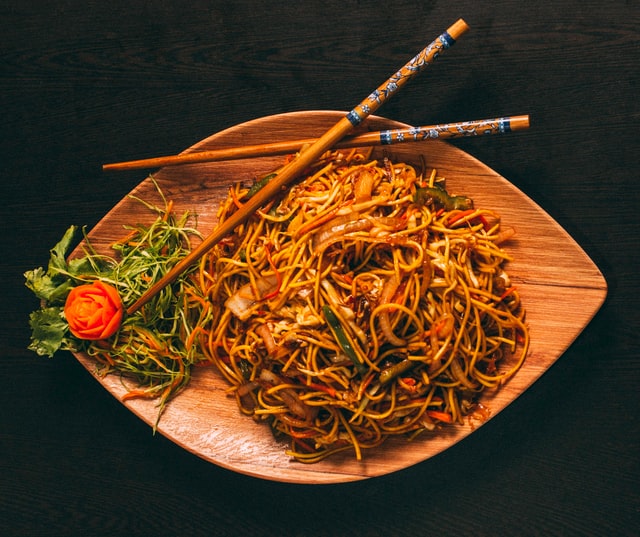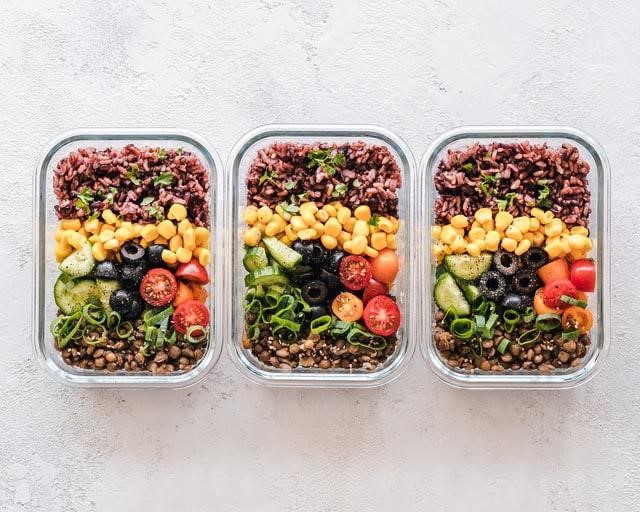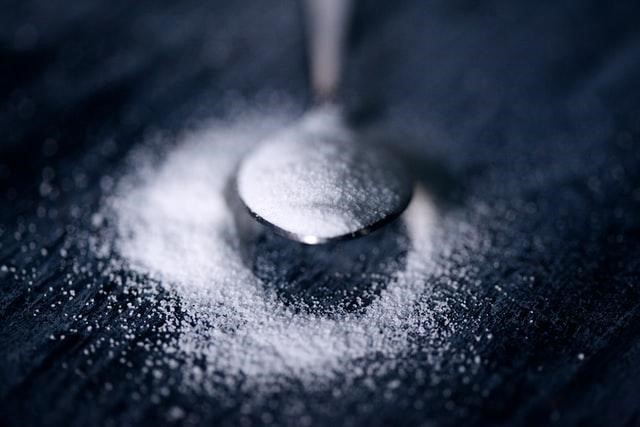
For diabetics, choosing sweeteners can be a minefield. Aspartame, for instance, is low-calorie but has been linked to cancer. Natural sweeteners like stevia are growing in popularity thanks to their connection with healthy eating, but some people complain that they taste funny.
Contents
- What is sucralose?
- Sucralose and blood sugar levels
- Health benefits of sucralose
- Precautions to consider before consuming sucralose
- Evidence that sucralose increases diabetes risk
- Should people with diabetes avoid sucralose?
- Sucralose may not be the best option for the diabetic diet.
- Incorporating sucralose into your diet
On the other hand, Sucralose is mainly known under its brand name Splenda and tastes very similar to sugar. But it's also low in calories and doesn't cause spikes in blood sugar levels. It seems to be the perfect option for diabetics...or is it?
To get to the bottom of it, we have compiled everything you are going to want to hear and take note of about sucralose and its relationship with diabetes. We'll be discussing what sucralose is, its health benefits, precautions to take before consuming them, sucralose's effects on blood glucose levels, and more!
So, without further ado, let's get right to it.
What is sucralose?
Sucralose, also known as Splenda, is an artificial sweetener made from sugar. It is made by replacing three hydrogen-oxygen groups on a sugar molecule with three chlorine atoms. This process makes the molecule taste 600 times sweeter than sugar without creating calories or carbohydrates.
Because sucralose is so much sweeter than table sugar, it’s often used with other sweeteners like high-fructose corn syrup or aspartame — another artificial sweetener.
It is known to be used in many products, including foods and drinks. In fact, sucralose has been found in more than 4,500 different food and beverage products worldwide.
Sucralose has been marketed by its manufacturers as a zero-calorie sweetener. The FDA has approved it for use in the United States since 1998 after reviewing the evidence for the safety of the product and approving it for use as a general-purpose sweetener in foods and beverages. In addition to being used in food products and drinks, it's also marketed as a tabletop sweetener and an ingredient in some medications.
The World Health Organization (WHO) also concluded that sucralose was safe for human consumption based on a decades-long study of its effects on rats.
Sucralose and blood sugar levels
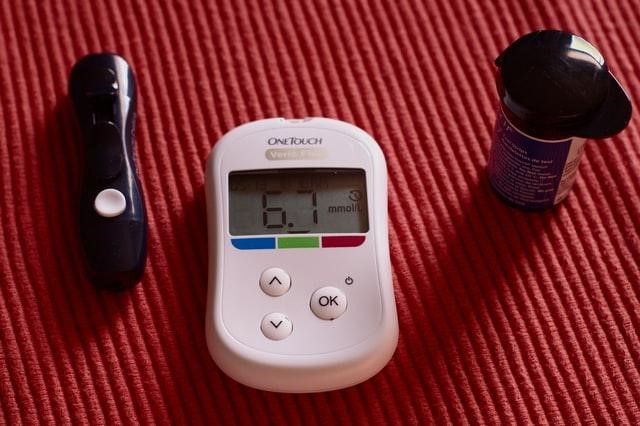
Sucralose is a calorie-free sweetener that’s gained popularity as an alternative to sugar. Unlike other artificial sweeteners, sucralose has little to no effect on blood glucose levels. It's been marketed as a zero-calorie sweetener.
However, there are some instances in studies that show those who are new to consuming sucralose experience a spike in blood glucose levels—but this isn't anything new: with any food item you've never tasted before (including artificial sweeteners), your body will react differently than when you consume something familiar.
Health benefits of sucralose
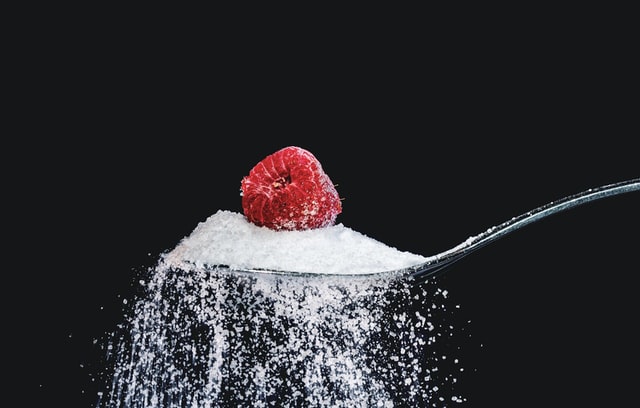
First and foremost, sucralose is a non-nutritive sweetener. What does this mean? Well, it means that you can use it in place of sugar or artificial sweeteners like aspartame without any of the negative side effects (like weight gain) that come with consuming those other products.
Since sucralose has no calories and you don't metabolize it by your body, you will not gain any weight from using this product. With that being said, it may help you with your weight loss journey while still adding some flavour to your favourite drinks or meals. However, that does NOT mean you should neglect your blood glucose levels, especially when you have diabetes.
In addition to being low in calories, sucralose has another positive health benefit: its glycemic index rating (GI). This is how quickly the food raises your blood glucose after eating it compared to pure glucose; a lower GI means fewer spikes in blood sugar levels throughout the day. Sucralose has been shown to have a GI rating between zero and five—very low compared to many foods out there!
Sucralose does not affect blood glucose levels or insulin production, so it can be used by people with diabetes if they are following a low-carbohydrate diet. In fact, studies show that eating foods with sucralose may even help lower blood glucose levels after eating.
Precautions to consider before consuming sucralose

Before you start using sucralose, it’s essential to know that this sweetener is not recommended for children under the age of one. It can cause tooth decay in young kids and may even be harmful to their developing bodies.
The main concern with sucralose is that it can cause digestive issues in some people. This is because your body doesn't have the enzymes necessary to break down the chemical structure of sucralose as it does with natural sugars. As a result, your body may not be able to digest it properly or absorb the sweetness from it. This can lead to bloating, gas, or diarrhoea after consuming foods that contain this sweetener.
Sucralose is also not recommended for people with kidney problems either. If you have any kind of chronic illness or if you experience pain or swelling in your kidneys, talk to your physician before using sucralose.
Sucralose also contains chlorine — which can be harmful if consumed in large amounts over an extended period of time — so people who are sensitive or allergic to chlorine should avoid consuming this product altogether.
It’s also a good idea to avoid using sucralose if you are pregnant or breastfeeding because there haven't been any studies on its effects on fetuses, babies, and nursing infants yet.
Evidence that sucralose increases diabetes risk
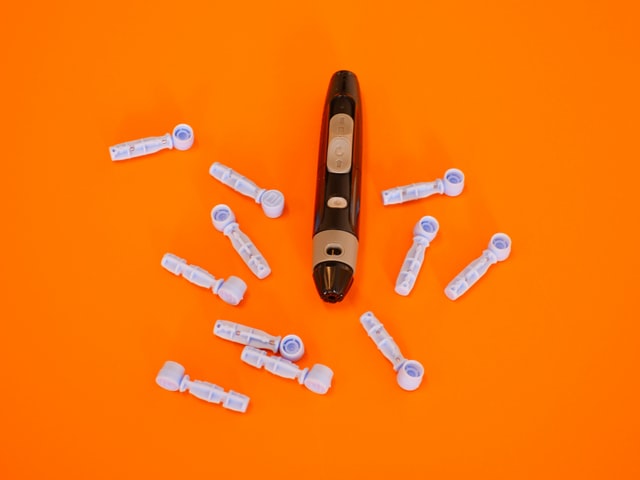
In some studies, sucralose has been linked to a higher risk of diabetes. This may be because it interferes with the body's ability to regulate blood sugar levels and/or increases insulin resistance.
A study published in Diabetes Care in 2001 found that drinking diet soda was associated with an increased risk of developing type 2 diabetes. The researchers noted that participants who drank at least two sodas per day were 1.9 times more likely to develop type 2 diabetes than those who did not drink any soda at all or only drank one or less per week.
Another study published in 2008 found that people who drank two or more sugar-free soft drinks each day had almost twice the odds of developing metabolic syndrome compared with those who did not consume any diet beverages (8 per cent vs. 4 per cent).
Metabolic syndrome is a cluster of conditions that together increase your risk for heart disease, stroke, and type 2 diabetes: abdominal obesity; high blood pressure; high triglycerides (blood fats); low HDL cholesterol (good cholesterol); elevated fasting glucose levels; elevated c-reactive protein (a measure of inflammation), and pro-thrombotic factors including P-selectin glycoprotein ligand 1 (PSGL1).
Should people with diabetes avoid sucralose?

Ultimately, it’s up to you and your healthcare provider to decide whether or not sucralose is right for you. While it has been marketed as a zero-calorie sweetener that doesn’t cause blood sugar spikes, this might not be the case for all people with diabetes.
If you have any concerns about using sucralose, it's best to consult with your local healthcare provider before making any changes to your diet.
Sucralose may not be the best option for the diabetic diet.
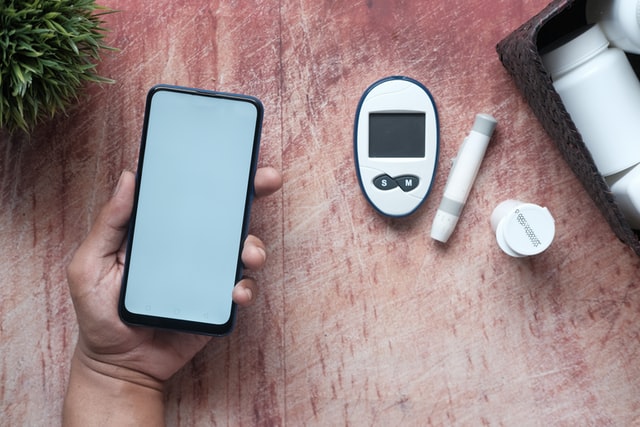
When you're following a diabetic diet, it's essential to be wary of the ingredients in foods and beverages. Many food manufacturers add chemical compounds (such as artificial sweeteners) to their products to make them more appealing and sweeter tasting than they would otherwise be. Sucralose is one such chemical compound that can be found on many ingredient lists for packaged foods and beverages.
Sucralose is a synthetic sugar substitute used to replace sugar in products like baked goods, frozen desserts, yoghurt, and many others. Some of these products are labelled as "diet" or "low-calorie," but this doesn't mean they're always good choices for people with diabetes or those trying to lose weight through calorie reduction alone—the same goes for any other product with added sucralose.
A recent study found that people who consumed sucralose at least once per day were 30% more likely than nonusers to develop type 2 diabetes over the course of 18 years. That statistic might sound alarming enough on its own; however, researchers also observed an association between consuming sucralose daily and developing kidney disease.
Incorporating sucralose into your diet
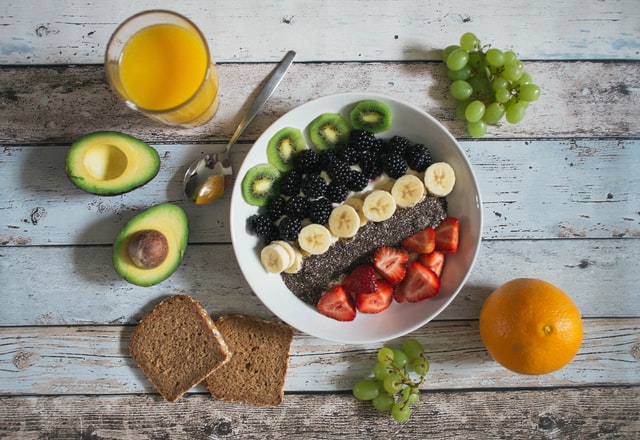
While it is not quite the same as natural sugar, sucralose provides a sweet taste without the negative effects on the body and blood glucose accompanying other types of sugars. People who have diabetes may need to avoid consuming too many products containing sucralose. However, this will depend upon their condition.
For most people, sucralose is a safe and effective way to sweeten foods. The research shows that it doesn’t increase blood sugar or cause weight gain as long as you don't go overboard with how much you consume and practice moderation at all times.
Note: Since sucralose is calorie-free, it may even help with weight loss. However, you should still limit your intake of sugar substitutes to prevent overconsumption.
With that in mind, we hope this article answers your question. Always remember to be cautious of how much sucralose you intake if you incorporate it into your diet.


